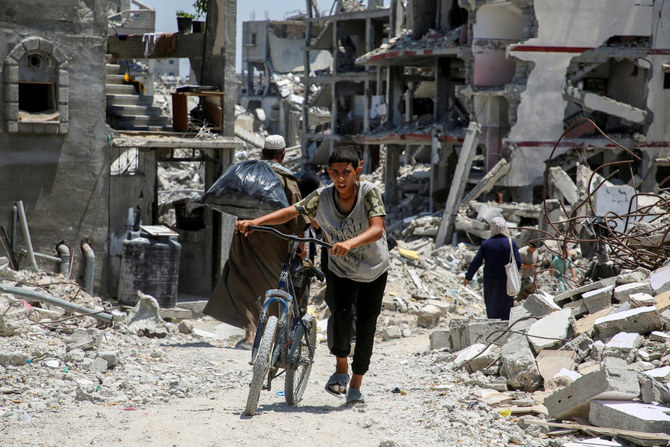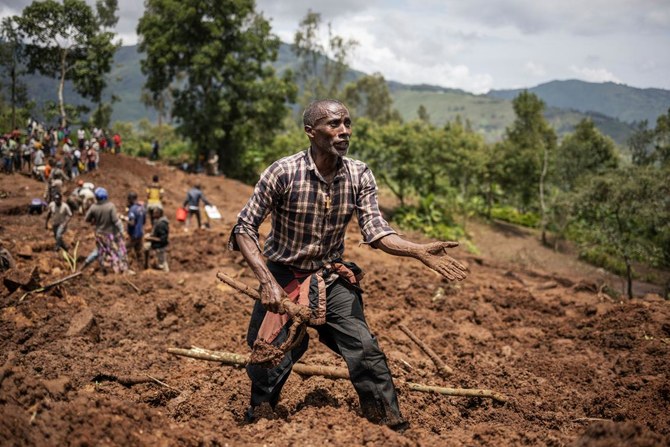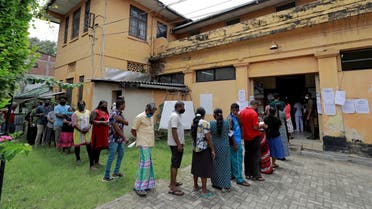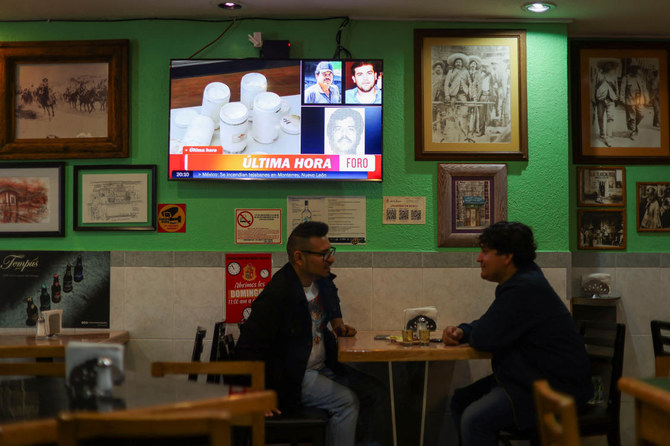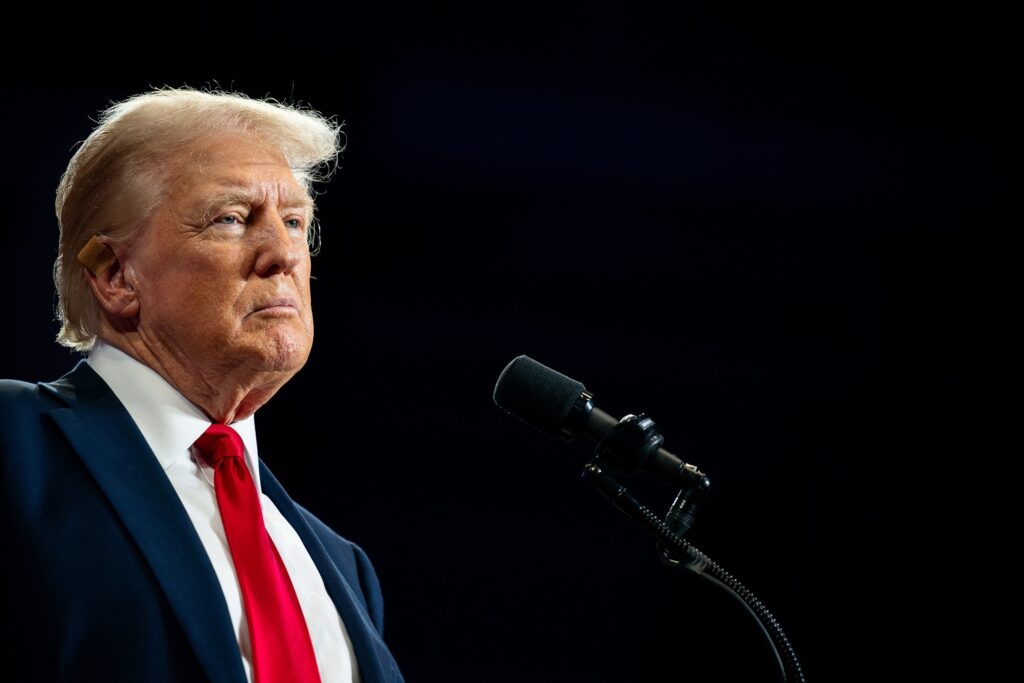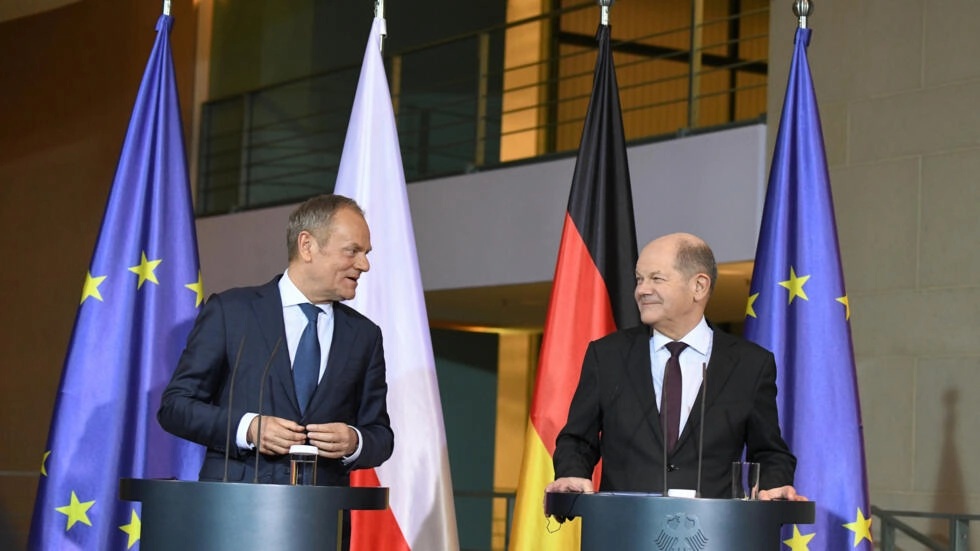
BERLIN (AFP): Polish Prime Minister Donald Tusk on Monday discussed ramping up security cooperation in Europe with the leaders of Germany and France, as fears grow that Donald Trump’s possible return to the White House might threaten Western solidarity against Russia’s invasion of Ukraine.
Former EU chief Tusk referenced Alexandre Dumas’s classic book, “The Three Musketeers,” as he said Poland was ready to stand shoulder to shoulder with France and stressed that the philosophy at the heart of relations between the European Union and NATO was based on the principle of “one for all, all for one”.
“Together with France we are ready to fight for this security” of “all of Europe,” he said, flanked by French President Emmanuel Macron.
Later in Berlin, Tusk hailed a “clear declaration that we are ready to cooperate” on Europe’s defence.
His comments were a thinly-veiled jab at US presidential hopeful Trump, who sent a chill through the United States’ European allies at the weekend when he said he would “encourage” Russia to attack any NATO country that does not meet financial obligations.
German Chancellor Olaf Scholz condemned Trump’s remarks as “irresponsible and dangerous”, at a joint news conference with Tusk, who compared the comments to a “cold shower” for Europe.
Tusk also said that he was keen to revive the so-called “Weimar Triangle” format of French, German and Polish cooperation that was initially created in 1991 to enable concerted European action.
He said the three partners would “not relent on the question of Ukraine”, adding that the alliance at the heart of NATO “can truly play a positive role”.
Scholz hailed the revived partnership of the trio as “very important to all of us”, calling for “new momentum” behind the Weimar Triangle to provide a “new boost” to the European Union.
Tusk returned to the post of Poland’s prime minister in December, marking a break from years of right-wing rule and vowing to restore strong EU ties.
France, Germany and Poland are seeking to strengthen cooperation as Moscow’s invasion of Ukraine enters a third year and Russian President Vladimir Putin grows more confident.
- ‘European pillar’ –
Macron praised Tusk and his government as “trusted, pro-European partners” who are “clear on European security”.
He also reiterated calls to strengthen the European defence industry.
“This is what will also make it possible to make Europe a security and defence power complementary to NATO, the European pillar of the Atlantic alliance,” he said.
In January, the French president called on European countries to get ready to back Ukraine in case Washington decides to pull the plug on aid.
Separately, top diplomats of France, Germany and Poland met on Monday to launch a joint initiative to fight Russian disinformation attacks.
French Foreign Minister Stephane Sejourne hosted German counterpart Annalena Baerbock and Radoslaw Sikorski of Poland at the Chateau de La Celle-Saint-Cloud just outside Paris.
Sejourne said at the weekend that France, Germany and Poland would unveil a new cooperation agreement to combat foreign disinformation operations, particularly those originating in Russia.
The ministers were expected to also report on Moscow’s new information attacks against the three countries.
“Our three countries have been victims of the same destabilisation strategy,” Sejourne said in an interview with French regional daily Ouest-France published on Saturday.
Sejourne said that the trio would reveal “the attacks that have been committed”, adding such disinformation moves were designed to divide public opinion.
Kremlin critics say Russia has for years used troll factories and fake news websites to spread disinformation in the West.
After Putin sent troops to Ukraine in February 2022, Moscow ramped up efforts to promote a pro-Kremlin narrative.

